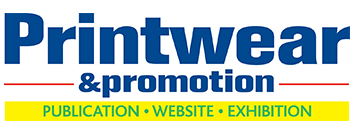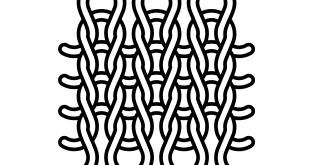
DTG printers are now very well established and play a major part in the garment decoration business. It is now very difficult to run a successful personalised garment business without one. Gone are the issues than many of the early printers were aligned with. Peter Wright, managing director of Amaya Sales UK, reports.
Direct to garment printers range from small desktop to large industrial units. For professional type systems you can pay from as little as £7,500 right up to £150,000 to £750,000 for the fully industrial, high production ones.
Before you start looking at the different printers that are available, think about the amount of prints you would like to print on a daily basis. If the amount is around 100 a day then the smaller ones are very capable of this and would cost you from £7,500 to around £12,000. If you are looking for around 200 a day then you would have to pay from around £17,000 to £22,000 or maybe a better way would be to network two of the smaller ones which would cost the same money but give you more flexibility. If your needs are greater than the aforementioned you would need to move on to the fully industrial units that are capable of producing 250 to 2000 pieces a day.
Quite profitable
Remember that DTG printing can be quite profitable. If you can print 100 a day and sell at say £9.95 for a full colour T shirt, your margin could be around £7.50 per shirt (subject to the cost per print of the printer) which is an impressive a £750 a day less your business expenses.
Now that you have decided on the amount you would like to print; the next important step is to check out the true cost per print of a range of printers. You will find a big difference from one printer to another, so do your research. Make sure you ask for the cost of say an A4 size full colour print on dark shirts. You will find that this varies from around 75p up to £2.50. Some of the industrial printers have managed to bring this cost of print down to around 40p. This will make a massive difference to your return on investment.
One of the industrial printer manufacturers has a patented built in pre-treatment system but all others require this separate process to be carried out either manually by spray gun or the use of an auto pre-treat machine. This pre-treat is required on all dark or black garments to allow the white ink to bind.
Narrowed down your search
By now, you should have narrowed down your search of suppliers. The next step is to find a supplier that is experienced in DTG for a period of at least five years and have the necessary support staff to advise you on all aspects of this lucrative business. Check out whether they deliver, install and train you at your premises and what the warranty terms are.
Look for a supplier that has experienced support staff that know how to point you in the right direction for any production situation. DTG printers are normally easy to operate but it’s the tricks of the trade than come in really handy.

Make sure that the quality printing is first class. The droplet size is all important for providing accurate and precise images. Test out how very small lettering appears, they should be fine and crisp.
Your chosen printer should have a good and easy to use RIP software that allows you to manipulate your design if necessary, change size, position and provide a cost of print.
My final recommendation is arrange to visit a least two suppliers for a demonstration. Take some designs of you own and see how they print the designs from scratch. A leavers hoodie is a good example design to take, this will show you if the printer can produce small lettering accurately.
 Printwear & Promotion The Total Promotional Package
Printwear & Promotion The Total Promotional Package




